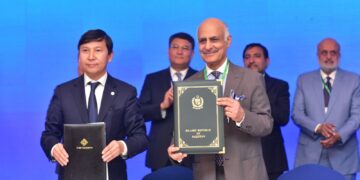KARACHI – In wake of Brexit, Department of International Trade, UK (DIT) and Department for International Development, UK (DFID) are developing their own scheme for the Generalized System of Preferences (GSP) that will become effective from January 2021 after completion of the transition period. Besides that, the UK is also undertaking a review of its current MFN tariff regime for its further rationalization.
UK Government has sought inputs from Pakistan for designing of the new scheme which will maintain the current level of preferential access available to Pakistan under the EU’s GSP/ GSP Plus scheme.
To obtain stakeholders’ inputs, TDAP organized a consultative session with concerned trade bodies and exporters today at Pakistan Hosiery Manufacturers & Exporters Association (PHMA)Office Lahore to seek proposals for making the new UK GSP scheme more user friendly, improving trade between UK and Pakistan, and to address any issues being faced by the Pakistan side under the current EU-GSP scheme. Mr. Kamal Shahryar, Adviser on GSP Plus, gave a presentation and sought inputs from stake holders.
During the consultative session specific areas relating to the GSP regime and MFN tariffs as well as avenues for improving overall trade and cooperation between the UK and Pakistan were covered. This included broad parameters for the new GSP scheme and MFN tariff rationalization, origin certification system and rules of origin, standards and compliances, and possible avenues for trade and technical assistance with the UK were discussed. Sepcial emphasis was laid on the importance of Rules of Origin and the lack of understanding that is present on the industy’s part, it was recommended that separate sessions for Rules of Origin (ROO) may be conducted by TDAP. Some of the major exporters like US Apparel, Azguard 9, Servis, Master Textile etc. attended the session.
TDAP is planning to hold similar consultative sessions with trade bodies and exporters during this week on 10th, and 11th March, 2020 at Faisalabad and Sialkot, respectively.

















